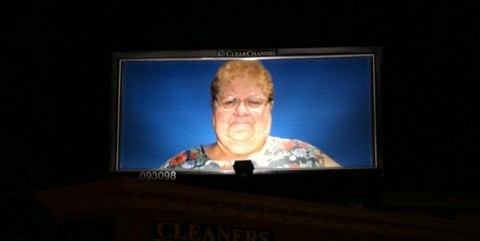This woman exemplifies everything I hate about the professional world and modern popular music. She stole, she cheated, she lied, and she stepped on good talented people to get famous.

Please read the following from link below (I reposted the article because the website it came from had some stupid formatting that made it very difficult to read. If you don’t believe me, click the link embedded into the yellow article title below (if you want to see what I think is ‘hard to read’ formatting)).
9/22/96 – DARK SECRETS // MUSIC:
The death of a former boyfriend and incriminating charges from former backing musicians are clouds hanging over Sheryl Crow’s sunny career.
by JOEL SELVIN
San Francisco Chronicle
A black hood covered his face. He wore a black skirt. His head was slumped against a leather strap chained to the headboard of the king-size bed in the sparsely furnished living room.
Kevin Gilbert, 29, was dead. That much his manager could see peering in at the front door that morning last May.
The Los Angeles County coroner’s office sees four or five such deaths a year – “autoerotic asphyxiation,” caused when people go one small step too far in depriving their brains of oxygen while they reach orgasm. It was a death without dignity, a random fall through the cracks of a secret life.
Gilbert was a musical prodigy from San Mateo who could play any instrument; colleagues invariably called him “the most talented musician I ever met.” To the rest of the world, though, his only real claim to fame lies in the credits to “Tuesday Night Music Club,” the 1993 debut album by Sheryl Crow.
“I saw something in Entertainment magazine that said Kevin Gilbert, the piano player on Sheryl Crow’s record, had died,” said songwriter David Baerwald, a member of the Tuesday club of the album’s name. He paused, sadly shaking his head. “He hated that Sheryl Crow record and that’s all he’s going to be known for. The piano player? Roll over, Kevin Gilbert.”
When Gilbert first brought his girlfriend Sheryl to informal Tuesday-night songwriting sessions with his friends, he played a pivotal role in shaping an $85 million megahit. For her, the album brought three Grammys, stardom and an industry buzz that makes her forthcoming album one of the most eagerly anticipated releases this fall. But for him, it was hardly a triumph.
“I don’t know if I can ever forgive her,” he wrote in his journal. “I don’t hate her – I’m just soooo disappointed.”
In a way it’s a classic Hollywood tale: Gifted boy artist meets girl artist, mentors her to success and is left in the dust – equal parts “Sunset Boulevard,” “A Star Is Born,” and “All About Eve.”
By any measure, Gilbert’s career was a fitful tumble of brilliance and happenstance, a series of near misses and one hit that wasn’t his. And his Tuesday night cohorts describe Crow, who refused to be interviewed for this story, as a marginally talented singer who exploited his skills and theirs in a ruthless grab for success.
But this wasn’t a movie, and so the real story is inevitably messier and more complex. As the circumstances of his death suggest, Gilbert had a dark side, a hidden face that made him an enigma to his friends. There was a history of anti-depressant use and a string of journal entries registering acute self-loathing and doubt.
BRIGHT BEGINNING
He had a promising start. As a teen-ager, Gilbert was given the run of Sensa Sound studio in Sunnyvale after hours; there he recorded tracks with his progressive rock group, Giraffe. In 1988 he won the U.S. and worldwide finals of a talent contest run by the Yamaha piano company. One of the judges, Pat Leonard, a producer for Madonna, invited Gilbert to make a record in Los Angeles.
That album, “Toy Matinee,” sold nearly 200,000 copies in 1991, thanks in part to an MTV video featuring actress Rosanna Arquette (whom Gilbert had dated). Gilbert put together a road version that included his then girlfriend on background vocals and second keyboard, Sheryl Crow.
Making that album, at age 21, Gilbert met another record producer, Bill Bottrell, who became a kind of father figure. Bottrell brought him to sessions for Madonna and Michael Jackson; before long, Gilbert had sublet the space adjacent to Bottrell’s Pasadena studio, Toad Hall. From there he set about recording his solo debut.
Drawing on all his perfectionist instincts, along with his ingrained self-doubts, Gilbert didn’t just work on his record; he suffered over it, recording and rerecording, polishing, tweaking, rethinking, redoing.
“It was a long process,” said Bottrell, who used to hear Gilbert thumping away through the common wall. “He sat over there endless nights.”
In August 1992, Bottrell convened a gathering of Gilbert and other musicians at Toad Hall with the simple agenda of collaborating for the fun of it every Tuesday night. “We were all good, not to be immodest,” Baerwald said. “We were also all cynical, embittered by the process of pop music. We were trying to find some joy in music again.”
A party atmosphere predominated. “Bill would sift through (the music) the next morning while we were all nursing hangovers,” drummer Brian MacLeod recalled. Then Bottrell introduced a project he thought might force a little focus onto the freewheeling, chaotic sessions.
Crow had finished an album for A&M Records, but despite the $500,000 spent on it, nobody at the label was thrilled with the results. Hoping for a quick fix, A&M hired Gilbert to remix the album, which was, in the immutable illogic of the record industry, already scheduled for release. Crow’s manager asked Bottrell to step in as well.
On Crow’s first Tuesday night with the club, Baerwald showed up with musical sidekick David Ricketts (from the 1986 David and David album), both of them high on LSD, with the first verse already written to a song, “Leaving Las Vegas.” Baerwald picked up a guitar, Ricketts the bass, and the band fell together to pick up where it had left off.
“Baerwald couldn’t function,” Bottrell said. “Sheryl started to get drunk. I was looking for that moment when the good take would happen.”
For most of that year, Bottrell and his Tuesday crew – now working all week long – scrupulously fashioned and reshaped Crow’s album. Because everything was a collaboration, songwriting credits were equally shared. “Everybody was equal,” Baerwald said, “except Sheryl. She wasn’t one of us. We helped her make a record.”
Gilbert’s name wound up on seven of the 11 songs; he sang and played keyboards, guitar, bass and drums.
His relationship with Crow was kept separate and even a secret from the group. “I’d see long conversations in the parking lot,” Baerwald said.
“Kevin challenged her,” MacLeod said. “He was trying to get her to be honest and sing from her heart.”
Unsure of herself, professionally in over her head, Crow went home with Gilbert after sessions and listened to him rant about the industry’s failings. “She had Kevin filling her with doubts,” Bottrell said.
When he wasn’t with Crow or the club, Gilbert struggled with his solo album, playing most of the instruments on his supple but powerful pop-rock tracks – polished productions that showed the gleam of countless studio hours. A proposed deal with a major label fell apart, so he made do with a tiny custom label.
After nearly a year of working together, all for one and one for all, the Tuesday Night musicians were shocked to learn they didn’t figure into Crow’s plans. Bottrell got the news when he met her to hand over the finished master in a Sunset Strip coffee shop. Although there had been much talk of hitting the road together to promote the record – bassist Dan Schwartz even bought a new bass for the tour – “she essentially told me to get lost,” Bottrell said.
“I add Sheryl Crow to a long list of people in Hollywood who told me they were my friend until they got what they wanted from me,” Schwartz said.
LIFE FALLING APART
As Crow’s relationship with Gilbert deteriorated – apparently she turned her attentions to an executive at the record label, Baerwald said – an increasingly bitter Gilbert threw himself deeper into his own album.
“I think I’m a tinge jealous over her upcoming release,” he wrote in his journal. “It’s probably going to be huge, so I have to prepare myself mentally for that. If she gets what she wants after behaving this way, she’ll be absolutely intolerable.”
For Gilbert, the final straw came when Crow sang “Leaving Las Vegas” on the David Letterman show. Afterward, when Letterman asked her if the song was autobiographical, a flustered Crow blurted out, “Yes.”
“I’ve never been to Las Vegas,” continued Crow, who nobody remembers having contributed greatly to the writing of the song. “I wrote it about Los Angeles. It’s really metaphorical.”
The next day, she and Gilbert exchanged angry words over the phone. He wasn’t the only one furious. Author John O’Brien, who wrote the novel that inspired both Baerwald’s early song lyrics and the movie starring Nicolas Cage, was still grumbling about Crow’s gaffe to his literary agent on the day he blew his brains out, a scant few weeks before the movie deal was complete.
As Crow’s album soared on the charts (her nod to Gilbert in the liner notes says, “I owe you big for two years of musical and emotional support. Thanks”), Gilbert’s solo album, a masterful but underpromoted effort titled “Thud,” disappeared almost immediately on release. At the same time, ironically, a tape he recorded for the Led Zeppelin tribute album, dropped from the disc at the last minute, exploded on Los Angeles radio, leaving his label ineptly scrambling to capitalize.
Despite its new prominence, the Tuesday Night Music Club never could quite regroup. The members did play one guest appearance with Crow at an out-of-town club, but the record company made it clear they would not be included in the more prestigious Hollywood show.
Gilbert threw himself into other projects: helping Baerwald produce a solo album by Susanna Hoffs of the Bangles, working with Bottrell on an album by Linda Perry of 4 Non Blonds (the Tuesday Night gang dubbed her “the anti-Sheryl”), writing and recording scores for TV shows under a pseudonym. He even produced a movie soundtrack song for which Crow sang vocals – a version of Steve Miller’s “The Joker” – although they were never in the studio at the same time.
In November 1994, Gilbert met playwright Cintra Wilson at a party in San Francisco; two months later she moved to Los Angeles to live with him. “He was massively depressed over the whole Sheryl debacle,” Wilson said. “I was a basket case. We were perfect for each other.”
Despite the tension with Crow, most of the Tuesday Night Music Club attended the Grammy Awards in March 1995. To show irreverence, Wilson rented 19th-century funeral regalia for Gilbert and her to wear: a morning coat and top hat for him, ostrich plumes and a bustle for her. Crow sat in the row in front of them. “They were not on good terms,” Wilson. “She was tensely gracious. It was a furtive, tense, real glitzy night.”
Crow picked up three awards, including Record of the Year for “All I Wanna Do,” a Tuesday Night instrumental with lyrics borrowed from verses in a little-known volume by a poet in Vermont. A week later, Gilbert was still wearing his Grammy medallion around his neck like a badge of valor.
From there, he set out to recapture the creative anarchy he felt was the authentic legacy of the club. He and MacLeod produced some startling recordings, far removed from anything either of them had ever done.
They were scary, dense, pop-industrial recordings, with Gilbert whispering ominous, almost threatening processed vocals. “They gave me nightmares,” Bottrell said. Gilbert envisioned a new band, Kaviar, clad in fetish rubber gear. He pulled other musicians into the plan.
At the same time, Gilbert could toss off simple, beautiful, sentimental tunes. In Baerwald’s last memory of Gilbert, the pianist was noodling around on the keyboard, plaintively singing Randy Newman’s “Marie.” Baerwald had briefly dozed off. “I woke up crying,” he said.
Bottrell, who played perhaps the largest role in Gilbert’s career, doesn’t think he ever really knew him. “There were tremendous areas of his life I was not privy to,” he said. “There were motives I could never quite figure out.”
But Bottrell’s wife, Elizabeth, remembers sensing a powerful mood of peace and reconciliation in a phone conversation with Gilbert the afternoon before he died. They talked about attending an industry dinner together; Gilbert kidded her about wearing rubber. They never spoke again.
One afternoon this summer, several hundred of Gilbert’s friends and associates gathered for a memorial service at the Bottrells’ Glendale home. Wilson, dressed white, sat next to MacLeod as Crow walked up to say hello. “I barked at her,” Wilson recalled. Wilson knew the titles of the album’s songs well enough. “Run, baby, run,” she yelped at Crow, who fled in tears.
Although Crow is reluctant to discuss Gilbert, she has been openly vocal in interviews about the rift over the album with the Tuesday Night Music Club.
“There were guys in the group who were feeling bitter about the record doing so well,” she recently told Billboard magazine. “Maybe I should have called it something else.”
On Tuesday, she will release her follow-up album, called – not insignificantly, perhaps even defiantly – “Sheryl Crow.” Clearly, this singer wants to prove that she’s an act and a talent all her own – not the smoke-and-mirrors creation of a savvy, multitalented backup band.
She did mention Gilbert to a Dutch journalist last month. “I wasn’t surprised by his death,” Crow told Edwin Ammerlaan of Orr Magazine. “Kevin was one of the most self-destructive people I’ve ever met. I don’t want to go into this too much, but it wasn’t a nice story.”

And now some Kevin Gilbert music that I think applies:
This is “Miss Broadway”. I think the lyric talks about how he felt about Sheryl dicking him (and his friends in the Tuesday Night Music club) over:
This song is a mantra for people who hate professional bullshit and feel abused for the talent they bring to the table. I feel this one rather closely. Here, Kevin Gilbert takes on the role of Johnny Virgil… a struggling rock star (…and a big “F” you to the theater piece ‘Rock of Ages’). This is supposed to be a statement against the music industry:
Finally, just a really great song and lyric. Seeing things for what they really are… not negative… a REALIST!
For more information see:
– I was murdered by Sheryl Crow – The Tragic Tale of Kevin Gilbert
– Two Thuds and a Lamb – An Introspective by Dave Kerzner (As told to Debbie Miller)
In summary (and to actually use the comments section on this blog) let me know what you think. Or just vote
PS: Shit, I’ve been waiting years to get the energy to post this article…. C-


